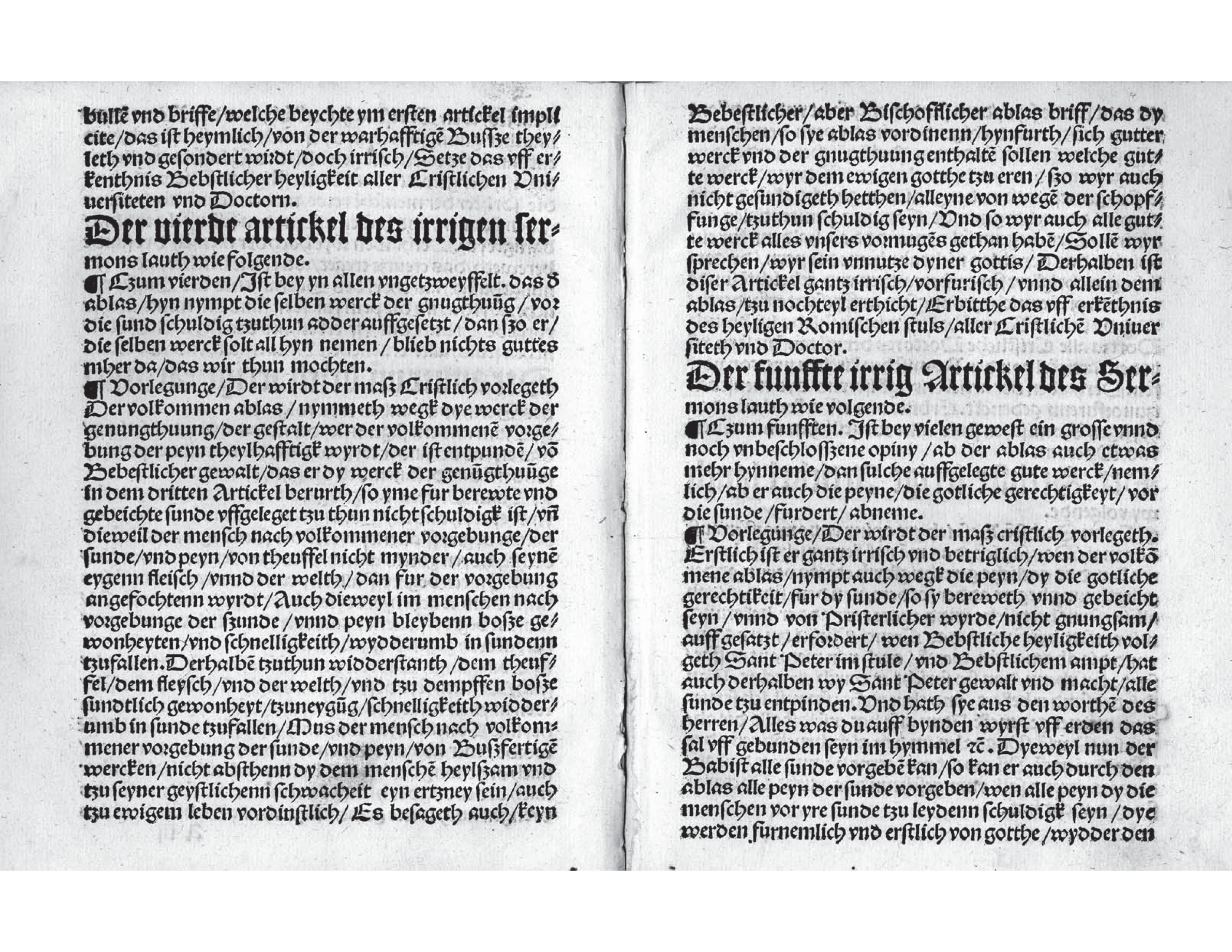IV.
The fourth article of the erroneous sermon reads as follows:
“Fourth, it is unquestioned by all of them that indulgence takes away those same works of satisfaction obligated by or imposed for sins. Thus, since it is supposed to take away all of these works, there would remain nothing else good for us to do.”
REBUTTAL ¶ It is rebutted in this Christian manner: The plenary indulgence remits the works of satisfaction to this extent: whoever is granted complete remission of pain is freed through papal power so that he is no longer obligated to do those works of satisfaction noted in article three, which had been imposed upon him for repented and confessed sins. Yet after the complete forgiveness of sins and pain, a person is no less tempted by the devil, his own flesh, and the world than he was before forgiveness. And evil habits and the possibility of falling quickly into sin again remain after forgiveness of sins and suffering. Therefore, in order to resist the devil, the flesh and the world and to subdue evil, sinful habit, inclination, and the possibility of falling quickly into sin again, a man, after complete forgiveness of sins and suffering, dare not refrain from penitential works that are salvific for him and a medicine for his spiritual weakness and also helpful toward gaining eternal life.
Also, no papal or episcopal brief of indulgence maintains that people who earn an indulgence should refrain henceforth from good works and from making satisfaction. In fact, we owe it to the honor of the eternal Godhead to do good works, even had we not sinned, solely because of his creation. And when we have accomplished all the good works that are possible for us, then we should [still] say, “We are useless servants of God.” [Luke 10:17] For this reason, this article is completely erroneous and misleading, and fabricated solely to the disadvantage of indulgences.
Set forth with acknowledgment of the holy Roman See and of all Christian universities and theologians.
